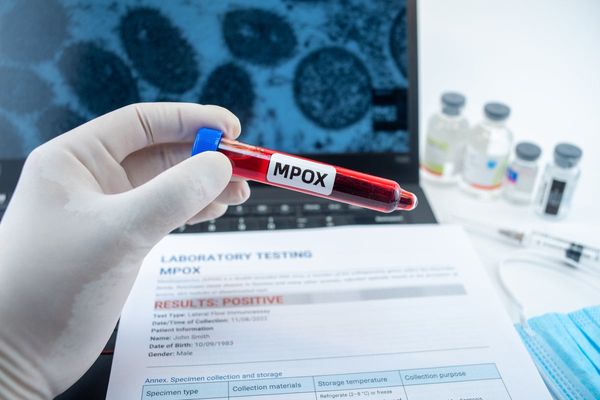Sanofi said Friday the shot it's developing with AstraZeneca significantly reduced the risk of babies becoming hospitalized with RSV. But Sanofi stock dipped early Friday.
The real-world study collected information from more than 8,000 babies born in France, Germany and the U.K. Babies who received the Sanofi and AstraZeneca drug — known by the investigational name nirsevimab — were 83.2% less likely to become hospitalized with respiratory syncytial virus, or RSV, than babies who didn't receive the shot.
In general, RSV causes coldlike symptoms. But it can be serious or deadly in newborns and older adults who have nonexistent or weakened immune systems. Nirsevimab is a monoclonal antibody. While vaccines help a person's immune system create virus-blocking antibodies, antibody-based drugs simply give recipients the antibodies they need.
On today's stock market, Sanofi shares fell 0.5% to close at 54.13. Sanofi stock is trading just below a record high at 58.22 it achieved in April 2022.
Sanofi Stock: RSV's Burden On Health Care
The French pharmaceutical company presented the test results for nirsevimab at the European Society for Pediatric Infectious Diseases meeting in Lisbon.
Babies who received a single dose of nirsevimab before their first birthday were 83.2% less likely to become hospitalized with lower respiratory tract disease due to RSV than babies who weren't given the shot. Nirsevimab also reduced the risk of severe RSV by 75.7%.
Bullishly for Sanofi stock, nirsevimab led to a roughly 58% reduction in the risk of hospitalization for any cause of lower respiratory tract disease.
"This means the overall burden on health care systems could be reduced significantly if all infants receive nirsevimab," Sanofi said in a news release. The company estimates RSV-related medical costs hit $5.26 billion in 2017.
Rivaling Pfizer's RSV Vaccine
The results put Sanofi and AstraZeneca relatively in line with Pfizer. Pfizer is studying a maternal vaccine. Pregnant women would receive the shot in their second or third trimester. In theory, the antibodies from the mother would pass through the blood to her baby.
In Pfizer's final-phase study, its maternal vaccine proved 81.8% protective against severe lower respiratory tract disease due to RSV in the first 90 days of a baby's life. By six months, the shot's effectiveness dropped to 69.4%. Sanofi stock edged down a fraction on Nov. 1 when Pfizer unveiled its test results.
Both shots from Pfizer and Sanofi/AstraZeneca have breakthrough therapy designations from the Food and Drug Administration. This means they could offer a substantial improvement over currently available drugs. Today, the only means of RSV prevention is a monoclonal antibody called Synagis given every month for five months to premature or at-risk babies.
But with the easing of social-distancing efforts that kept Covid at bay, RSV cases last year hit sky-high levels. Health officials are bracing for another possible RSV curveball in the upcoming winter season. GSK now has an approved vaccine for older adults, with Pfizer and Moderna close on its tail. The interventions for infants could be next. That could help bolster both Sanofi stock and Pfizer shares.
"This winter saw higher rates of RSV-related infant hospitalizations than during pandemic or pre-pandemic years," Thomas Triomphe, Sanofi's executive vice president of vaccines, said in a written statement. "The (study called) Harmonie demonstrated the real-world impact nirsevimab has on pediatric hospitalizations and illustrate its importance for infants, their families and public health."
Sanofi Stock Recently Broke Out
Sanofi stock broke out of a cup-with-handle base and a buy point at 50.03 in late March, according to MarketSmith.com. Shares are now well above the buy zone, which runs from 50.03 to 52.53.
Promisingly, Sanofi stock has matching IBD Digital Composite and Relative Strength ratings of 90. This puts shares in the top 10% of all stocks in terms of fundamental and technical measures as well as 12-month performance.
Follow Allison Gatlin on Twitter at @IBD_AGatlin.







